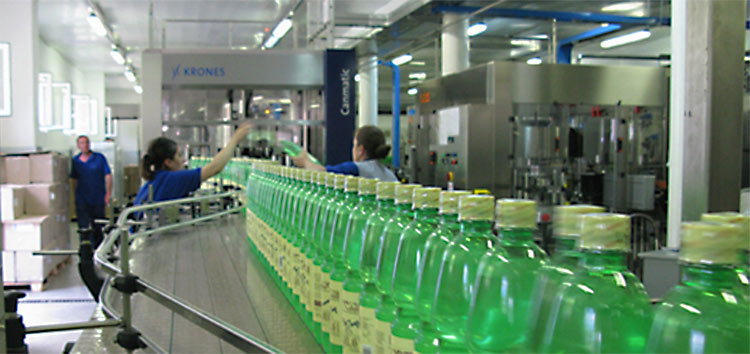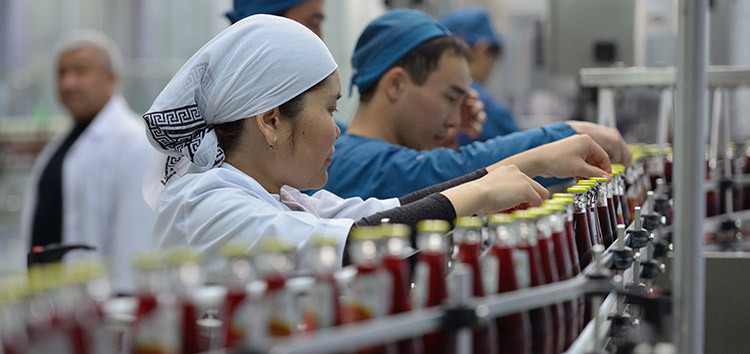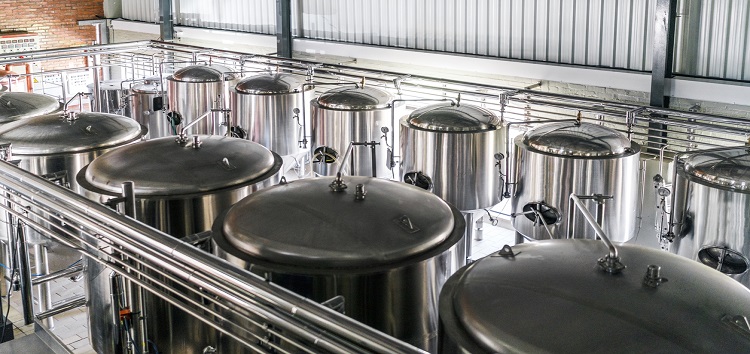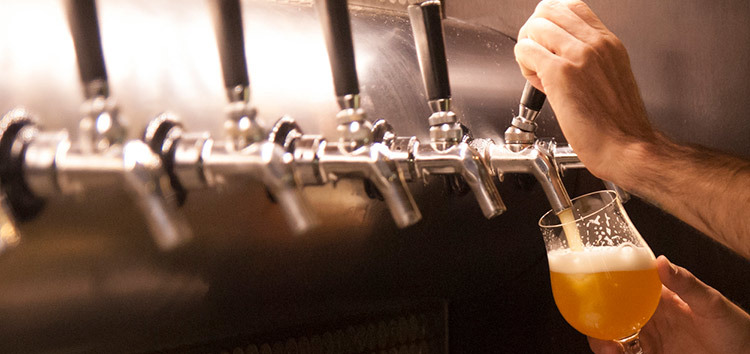FINTECC Supports Expansion of Leading Georgian Mineral Water Producer

With EBRD backing Healthy Water expands its products range and increases energy efficiency
On the days the Georgian company Healthy Water launches new products, Irina Gaprindashvili feels especially proud. The other day two new own brands were launched: a carbonated drink Chakara and energy drink Bura. Gaprindashvili works as Operations Manager for the leading Georgian mineral water producer. With the EBRD support, the company has built a new modern factory and has since been massively expanding its products portfolio.
Healthy Water was founded in 1997 by Georgian and Swiss entrepreneurs and is a subsidiary of an existing EBRD client, JSC Mergebeli Holding. With its brands Nabeghlavi and Bakhmaro, Healthy Water has quickly grown into a major Georgian mineral water company with some 45% of the local market share.
In June 2017, Healthy Water has launched a new non-alcoholic beverage factory with cutting edge technology. The ERBD’s FINTECC Programme supported its construction with a total loan of €10 million, incentive grant of €335.838 and technical assistance. As a result, Healthy Water has increased its competitiveness in the domestic and export markets while cutting its energy costs and reducing its carbon footprint.
Expanding portfolio and exports
Previously, Healthy Water production was scattered in several industrial buildings, dating back to the 1960s, without possibility for growth or improvement. That is why the new “state-of-the-art factory” with four additional production lines and a syrup mixing area was the biggest innovation about the project, says Irina Gaprindashvili. “The new facility has everything in one place: production, filling area and a modern warehouse for storage of ready products”, says Gaprindashvili. “We can now fill all non-alcoholic drinks in all types of packaging: glass, PET, aluminium cans and Tetra pack. In addition to our existing mineral and spring water portfolio, we are able to produce juices, nectars, carbonated soft drinks, ice tea and ice coffee.”
As one of the first steps, FINTECC enabled a comprehensive assessment of the Georgian market of soft drinks. It helped Healthy Water to define its new product mix and identify the best options for the local and international markets. Currently, Healthy Water exports to 28 countries. A few months ago, the company has signed a new partnership contract with the Austrian beverage company Rauch, one of the biggest worldwide juice producers. “Healthy Water will be a regional hub for the distribution of Rauch products in the Caucasus region, East Asia and Middle East, as well as possibly some countries from Gulf countries”, says Gaprindashvili. In the future, Healthy Water also plans to work on private labels and brands for other companies.
Energy-efficiency and cost savings
FINTECC has enabled a technical assessment of the company’s construction plans, which confirmed that Healthy Water can ramp up its business only if a new production and storage facility is constructed. The most challenging about the project was its geographical location. “We are located almost on an island with a mountain on the one side and a river on the other side of the factory, so we had to build an additional bridge to access the area,” says Gaprindashvili.
Although the new factory is four times larger than the old production area, the company’s fixed costs stayed almost the same, according to Gaprindashvili. “Our efficiency increased considerably, which created more benefits for local employees and the company itself and for the budget as well, because the company is paying more money and taxes to the government with the increased production.”
With the FINTECC incentive grant the company has introduced new energy efficient technologies which are not yet spread in Georgia. Those included heat recovery from compressors, a high efficiency geothermal heat pump, LED lighting and energy management system. According to first estimates, Healthy Water is set to increase its energy performance by at least 10%. Over the next ten years, it will save 27.240 MWh of electricity and 10.308 tonnes of CO2. “With LED lighting we save up 50% of our former electricity consumption. For heating we save two thirds of what we used to pay,” says Gaprindashvili.
Social benefits and stimulating the market
During the project Healthy Water has also changed its initial plans to install a boiler, based on diesel. Instead, after negotiations with the local energy supplier and the local government the company initiated construction of a new 70-km natural gas pipeline, according to Gaprindshvili. “We also took on an obligation on our company to provide gas to local villages, along the pipeline’s way. Until now these villages were heating with other means, like wood, which are not energy-efficient. So, this is one of the biggest social benefits of the project.”
Healthy Water is the largest employer in the western Chokhatauri region of Georgia. The new factory building also offers better working conditions and special rest and training rooms for its 150 employees.
Meanwhile, the competition is not sleeping, says Gaprindashvili. “Of course they have tried and are still trying to introduce similar products to ours and increase the competition. But the competition is very good for us, because we have more incentives to push the market and produce more.”
But Gaprindashvili is sure that Healthy Water has currently the leading position. “I think, we can brag about it a little bit, because that is what our partners told us. In Georgia there is definitely no factory like this with all the lines and comparable energy efficiency standards in the buildings.”


